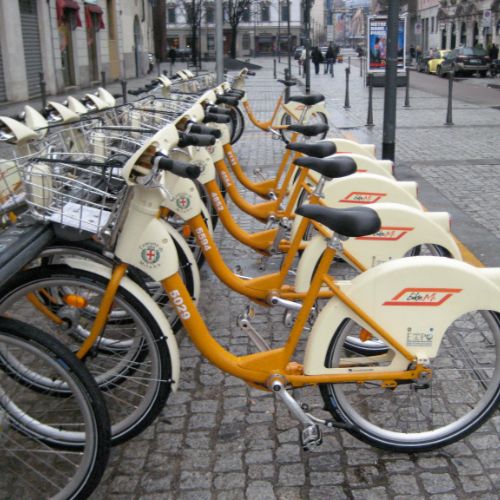Supercharge the sharing economy with the Internet of Things
Find out how the Internet of Things (IoT) will help the Sharing Economy to reach its full potential.

You probably have already noticed: these days you can make a buck by renting almost anything you own and, at the same time, you don’t need to own as many things as you once did. Welcome to the “Sharing Economy.” Would you have thought five years ago that people would rent their own car to perfect strangers? I didn’t think that was possible, and many people still don’t feel comfortable with it, but it is a trend that is picking up quickly.
According to a recent Price Waterhouse Cooper study, 43 percent of consumers expressed that owning today feels like a burden and 72 percent say they could see themselves becoming a sharing economy consumer. VentureBeat estimates there are 17 billion-dollar companies with 60,000 employees and $15 billion in funding in the sharing or collaborative economy. The figure includes venerable companies like eBay, as well as relative newcomers such as Etsy, Chegg, WeWork, Airbnb, and Uber.
The possibilities for sharing are almost unlimited: you can rent houses, cars, bikes, clothes, you can sell the energy you produce — in fact, on platforms like NeighborGoods, you can share or rent anything you can think of! Finding a way to unlock the idle capacity of stuff we own doesn’t just create an additional source of income, it’s also reshaping entire global industries, from hotels to car rental to car manufacturing.
In my opinion this makes a lot of sense: why should we own things that can be easily rented? Most objects we have sit unused most of the time while getting old, losing value and making houses a mess. Cars, for example, are parked on average 90% of the day. Wouldn’t it be better to own only the essentials and then rent everything else on an on-demand basis?


Enabling technologies
Smartphones and the Internet are the main enabling technologies of the sharing economy because they solve a few fundamental problems. Online communities extend your reach beyond your acquaintances and allow you to find what you want. User rating systems based on past transactions make it possible for complete strangers to trust each other. Finally, smartphone GPS allows easy filtering of nearby opportunities and enables the whole process to be performed while on the go.
Sharing Economy + Internet of Things = <3
Despite all the advantages and the hype, today many people still haven’t hopped on the sharing economy bandwagon. One of the reasons, I think, has to do with how complex sharing still is. Everyday is an opportunity, for instance, for your car to be shared… but if you think about all the steps required to make it happen, it is easy to understand why many people prefer not to bother: first of all, you have to post your car’s availability for the day and wait for inbound bids; then you have to meet in person with your rentee to exchange the key and finally you must wait for his return to charge your fee based on actual mileage. With all the extra logistics involved, most people understandably limit sharing to the most profitable opportunities, such as a long term rentals while on holiday, which happens about once or twice a year at most… This leaves a lot of opportunities untapped!
The Internet of Things (IoT) could streamline and make this process automatic and real-time, fueling a dramatic new wave of growth and economic transformation. If your car was connected to the internet, it would know your schedule and it would be able to decide whether it should be available for rent or not. Doors and ignition could be managed via smartphone. The car would be equipped with GPS, so it could easily understand when it has been returned and it could calculate the mileage via the odometer reading. Finally it could take care of charging the renter’s credit card to complete the transaction. In this scenario, the whole sharing experience could be managed without the car’s owner even knowing it. This would allow tapping any possible rent opportunity available, no matter how small, thus maximizing the profit while at the same time making the world a better place. IBM stated in its “device democracy” whitepaper that
“the IoT is expected to make the physical world every bit as easy to search, utilize and engage with as the virtual world … the IoT can liquify whole industries, squeezing greater productivity and profitability out of them than anyone ever imagined possible.”
I feel this sums up nicely the impact IoT could have on entire industries. This is really exciting, I hope to see more of it in the near future.